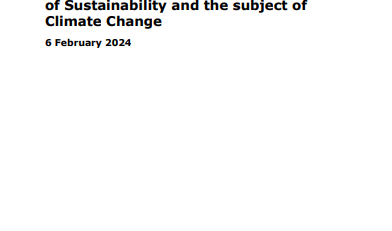The Quest for Sustainability in Contingent Pension Plans
By Barry Gros, Barbara Sanders
The types of pension plans offered to Canadian employees are changing. As membership in traditional defined-benefit pension plans declines, plans in which benefits are contingent on the financial status of the plan are becoming more common. Rather than placing all the risk on sponsors to deliver guaranteed benefits to members, these contingent pension plans require members to take on at least some of the risk that benefits may or may not meet expectations. At the same time, the term “sustainability” has risen to the fore of pension discussions. But what does it mean in the new context for pensions? How can it be achieved? What are the implications for regulatory policy? We explored these questions in interviews with 30 key experts on the front lines of this pension evolution and provide a summary of their insights in this Commentary. We then draw conclusions about how regulatory policy can best adapt to the emerging paradigm. While the term sustainability has become widely used, many respondents reported using it without having an official definition. When probed for their own definitions and interpretations, their responses varied but usually contained elements such as: long horizon, affordability, and a commitment to members’ financial wellness in terms of providing a meaningful benefit. Many view sustainability as a balancing act between the needs of the present and the needs of the future. In fact, there is a strong intergenerational equity component that appears to be tied up in the definition of sustainability, and this is emerging more and more in discussions of contingent pension plans. When asked about what needs to be in place for a plan to be, or to become, sustainable, respondents surprised us by identifying a wide range of other factors in addition to financial measures, including the design and nature of the plan, governance, and communication with stakeholders. Contingent pension plans will likely play an increasingly important role in delivering retirement benefits in the future. They offer a different promise than traditional defined-benefit plans and the contract with plan members is different. This needs to be reflected in how they are managed, communicated and regulated. The parties involved in setting pension policy and standards should spend more time understanding in-depth the existing practices of well-managed plans and seriously consider our recommendation that prescriptive standards focus on aspects such as governance and member communication, leaving financing-related standards to be principles-based.
Source: SSRN











